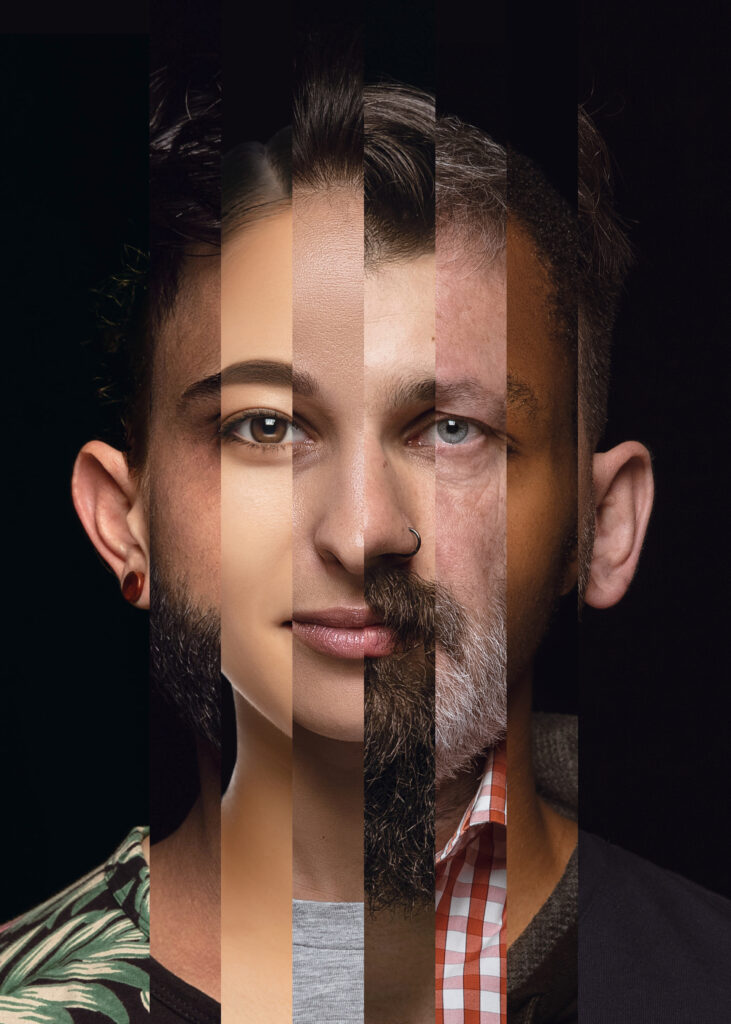
Human beings have survived and thrived by forming in-groups. This instinct is so central to our lives that we’re often willing to risk everything to protect our group.
But here’s the problem: other in-groups can be seen not just as different, but as threats—or even as less than human. And once we’ve stripped another group of their full humanity in our minds and our “common sense of reality,” we feel freed from moral restraint. Our drive to protect our own can lead us down a dangerous path—toward exclusion, violence, even extermination. I’ve written often about this process of dehumanization as a way that societies are prepared for violence.
As we move through this season of holy days in the Abrahamic traditions, I want to reflect on this idea through that lens.
In my book Go and Do Likewise, I wrote that the Abrahamic traditions recognize both the human need for, and the goodness of, in-groups. God says to Abraham, “I will make of you a great mishpachah.” Mishpachah is a Hebrew word that means in-group, tribe, nation, or clan.
The text could have gone on to say, “Now convert or destroy other mishpachah.” But in Genesis 12, it says no such thing.
Instead, the passage suggests that through this new in-group, all other mishpachah the Creator would bring brachah—a blessing. Brachah in this context means both to speak well of others and to offer your best, in humility, for the thriving of another group.
Other in-groups have their own stories, foods, languages, spiritualities, and ways of seeing the world. The Abrahamic tradition, at its roots—if not always in practice—recognizes that the Creator has gathered fully human beings into many in-groups, not just one. And that we are meant to be blessings to each other.
Of course, in-groups still get into conflict. But the Creator’s intent is not domination—it’s cooperation. While Abraham is called to create an in-group, his very calling also affirms the pluralism and diversity of creation as part of the Creator’s intention.
This general idea, along with concepts from many traditions, helped inspire the idea of the social contract in forming government. The rule of law and human rights rest on two powerful truths:
- That all people, across all in-groups, are fully human
- And that we often fail to see others that way
The Founders understood this tension.
Laws and rights are essential to holding a diverse society together. But they only work when they are applied equally and fairly. In a democracy, it is the people who give the government power—to be used for the common good.
“We hold these truths to be self-evident, that all men are created equal, that they are endowed by their Creator with certain unalienable Rights…”
—Thomas Jefferson, Declaration of Independence (1776)
“If men were angels, no government would be necessary.”
—James Madison, Federalist No. 51 (1788)
“Government is instituted for the common good… and not for the profit, honor, or private interest of any one man, family, or class of men.”
—John Adams, Thoughts on Government (1776)
Today, after years of dehumanizing immigrants, Muslims, Jews, Indigenous people, LGBTQ folks, and others, we are seeing our government use its power in ways that ignore the rule of law and human rights. This is a powerful attempt to use our very human tendency to distrust other in-groups to create a situation in which all our rights are diminished and endangered.
Legally residing students are being rounded up based on what they say and who they associate with. People are deported—without due process—to dangerous foreign prisons known to gleefully violate human rights. (See this article)
If the government can do that to them, it can do it to any of us.
This is not just a legal issue, but one that involves the deepest values of our traditions.
I’m not saying that the government can’t or shouldn’t enforce laws—or even expel truly dangerous individuals. But any governmental action that denies due process, as the Fourteenth Amendment enshrined, breaks not only the laws of this nation, but the deep teachings of the Abrahamic traditions—and every wisdom tradition I know of. (See the Parliament of the World’s Religions.)
All our wisdom traditions teach us to honor the humanity of others. We’ve often failed to live up to that ideal—but we remember and celebrate those who stood up for the dignity of all.
Now it’s our turn.
Again.
We are all human. Or none of us are.
